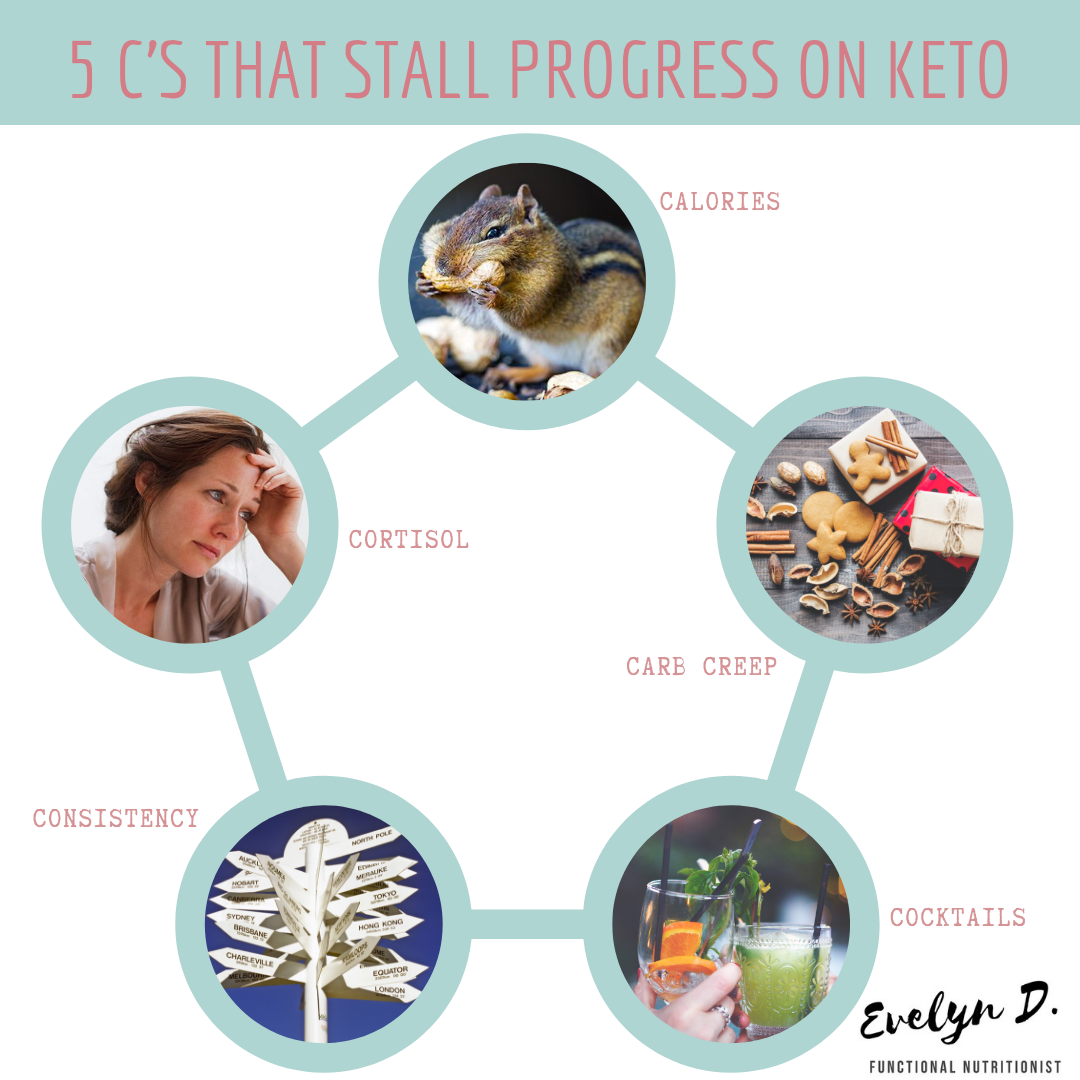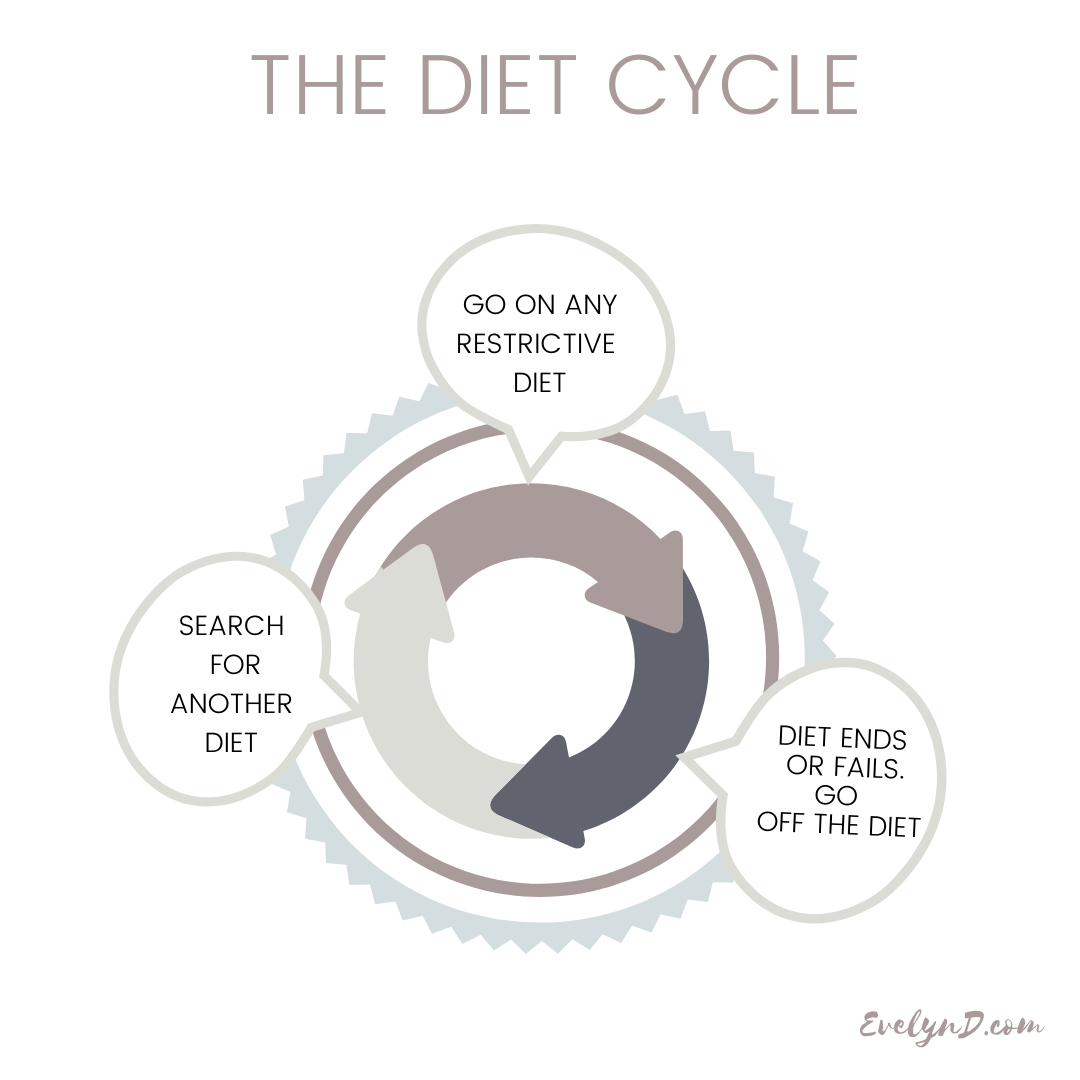For years I falsely believed that Intermittent Fasting wasn’t appropriate for women with hormonal challenges like me – namely Hashimoto’s thyroiditis and adrenal dysfunction.
However, my integrative/functional medicine doctors encouraged me to try it and I haven’t turned back since. The transition was a breeze…not to mention the effortless weight loss and maintenance, the increased energy, the reduced bloating and inflammation, the clear head and lighter mood PLUS the overall FREEDOM I now have with food – no more incessant need to eat every 3 hours! – It’s made me a total convert!
Intermittent Fasting is simple, but at first it may not be easy. And because the practice creates a shortened eating window, it makes food choices even more important -because with fasting, we tend to eat less often – what we eat, when we DO eat – really matters. (which is why I created the Guided IF program).
But I wanted to share something that’s not often talked about in the IF world and that’s who should NOT fast. I’ll give you my complete list and I’m saving the one I want to elaborate on for last because it’s a mindset thing that can apply to most of us.
- Anyone with an eating disorder should not IF without working with an experienced practitioner. The concept of timing your eating window can be very triggering for people with a dysfunctional relationship with food.
- Those that are underweight or malnourished: Since weight loss is likely with IF and it can be tricky to get the right amount of nutrients in the shortened eating window, fasting is not advised without close monitoring from a health practitioner.
- Women who are pregnant or nursing: Focus on growing that baby – if periodic fasting comes naturally, great, but don’t try and make it happen. Try IF later. NOTE: Intermittent Fasting is a wonderful approach to enhance fertility because it reduces inflammation, balances blood sugar and resets hormones.
- Certain health conditions may need closer monitoring especially Diabetes and severe hypoglycemia (although these conditions are often improved with fasting).
- LAST BUT NOT LEAST: Women (or men) that have a negative perception or are closed minded about Intermittent Fasting.
^ That’s the one that no one talks about, but it’s super important to get your mind right about the health benefits and natural human evolutionary design of intermittent fasting. We are biologically wired to eat intermittently with longer periods of fasting and NOT to eat every few hours. Our culture has messed up our rhythms with this false dietary dogma. If your mind ain’t on board with that, don’t bother doing it.
Why?
Because if there is cognizant misalignment or negativity with IF (or any change in life, really), your body will perceive the “thing” as a stressor. Stress will create hormonal imbalances that counteract the benefits of fasting.
If you can’t get mentally behind extending your fasting window a few hours – basically skipping breakfast (or dinner, depending on the fasting schedule you choose), while eating larger, nutrient dense meals, less often, then please don’t waste your time.
I’m not saying you have to LOVE intermittent fasting right out of the gate, but you have to at least be OPEN to it, CURIOUS about it enough to experiment with it without the belief that it’s going to be bad. This mindset applies to anything – the keto approach, exercise, work, food, drink, money, relationships – ABSOLUTELY EVERYTHING in life. So check in with your mindset, line it up with your intention and you’ll be golden!




